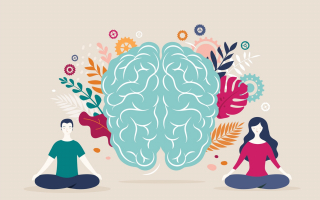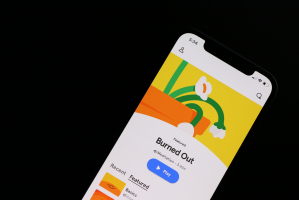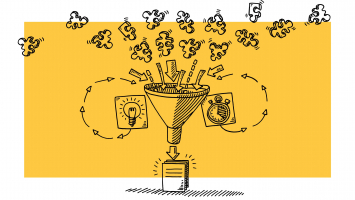Top 9 Simple Ways to Deal with Stress at Work
According to research, a large percentage of Americans experience work-related stress, and this number is growing. Using effective coping skills to lessen ... read more...stress at your current job may be effective in these circumstances. If you are having trouble managing your stress at work, you can try some of the methods listed below.
-
Many people arrive at work feeling anxious after rushing to get the kids fed and off to school, avoiding traffic and dealing with road rage, and downing coffee in place of a nutritious breakfast. They become more sensitive to occupational stress as a result. You might be shocked by how much office stress affects you after a difficult morning. The stress of your job may be easier to handle if you start the day with planning, a healthy diet, and a cheerful outlook.
It's time to start making plans for your morning because it will set the tone for the rest of the day. You set up your day for success when you build positive morning habits. After a night of good sleep, you will start your day feeling refreshed and prepared to tackle the day, beginning with your new morning routines such as drinking a glass of water in the morning; giving yourself a few minutes to smile and practicing gratitude; making your bed;...

Start Your Day off Right 
Start Your Day off Right -
Today's employees are more distracted than ever because of emails, phone calls, pop-ups, instant messaging, and sudden, urgent deadlines. Even while you might not be able to control the interrupters, you can control your reaction.
You may handle interruptions in one of three ways: accept them, ignore them, or assess their significance and come up with a strategy. Numerous disruptions are regular and predictable. You should have predetermined standards for choosing your response. One way to control distractions is to create a plan that leads to a new task after the previous one is finished. This implies that you shouldn't read your email prior to accomplishing a plan target. Responding to email within specific times, setting aside office hours for in-person conversations, or locking the door when you need to concentrate are other good method you can apply.
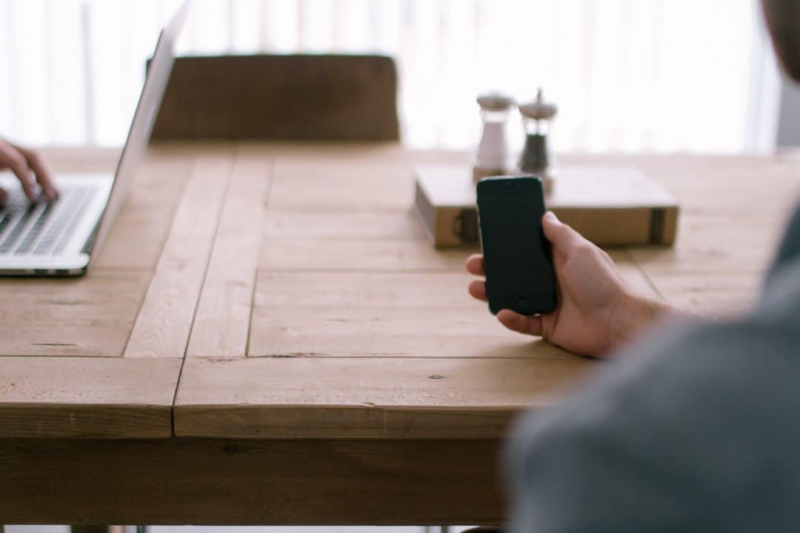
Eliminate Interruptions 
Eliminate Interruptions -
Your physical and mental health suffers when you are involved in interpersonal conflict. It might be challenging to get out of workplace conflict, therefore it's a good idea to minimize workplace conflict wherever possible. Avoid people who don't get along with others if at all feasible. If the conflict still finds you, be sure you know how to respond to it effectively.
Even while you don't have to be a social butterfly and join happy hour every week, chit-chatting with your coworkers might help you unwind. Start a discussion by bringing up a few simple, fascinating topics. This may help with productivity and stress relief. Your mood can be raised and you can work together more effectively when you just get to know the people on your team.

Stay Away From Conflict 
Stay Away From Conflict -
Getting organized is among the most effective methods to lower stress. Getting prepared can lower your stress levels by preventing last-minute panic in a variety of circumstances.
Planning ahead to keep organized will significantly reduce your stress at work, even if you are a naturally disorganized person. Being well-organized with your schedule results in less rushing to get ready in the morning and less hustling to leave at the end of the day. When it comes to organizing, you should concentrate on two things: your space and your schedule. Research demonstrates that having too many things around really has an impact on our brains, making it difficult to focus. Try to focus on doing one task at a time. In fact, even a very little interruption makes it take roughly 25 minutes to go back to the original work, according to the study. Or, to put it another way, the 30 seconds you set aside to briefly check in on social media really take 25 minutes and 30 seconds!

Stay Organized 
Stay Organized -
Physical discomfort, which is frequently related to the place of most of your daily chores, is another unexpected source of stress at work (such as your desk). Maintaining a tidy and organized workstation while at work can help to reduce stress and enhance mental health.
If you sit in an uncomfortable chair for a short period of time, you might not even realize that you're stressed, but if you spend your whole working day in that chair, you can get a sore back and become more sensitive to stress as a result. Try to clean and disinfect desk surfaces, keyboards, computer mice, and phones. Surprisingly, even little things, like workplace noise, might be upsetting and make you feel slightly irritated. Make every effort to set up a calm, cozy, and relaxing workstation.

Be Comfortable 
Be Comfortable -
The ability to multitask was formerly hailed as a great method to make the most of one's time and do more in a day. However, people eventually realized that their speed and accuracy, not to mention sanity, often decreased if they were doing calculations while holding a phone to their ear.
The majority of people find that dividing their attention doesn't work effectively since it left them feeling "frazzled". Your efforts will be wholly concentrated on accomplishing more in less time, with total disregard for every other aspect. "Multitask" is not always a sign that you're getting the most out of your time to do a lot of tasks in a short amount of time. It means the complete opposite. You may be working more quickly if you focused on one activity at a time. Try another cognitive method, such as chunking, to keep on top of your tasks instead of multitasking.
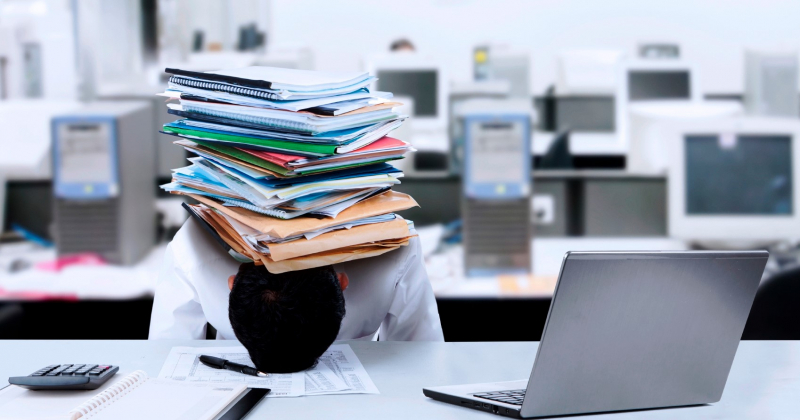
Forget Multitasking 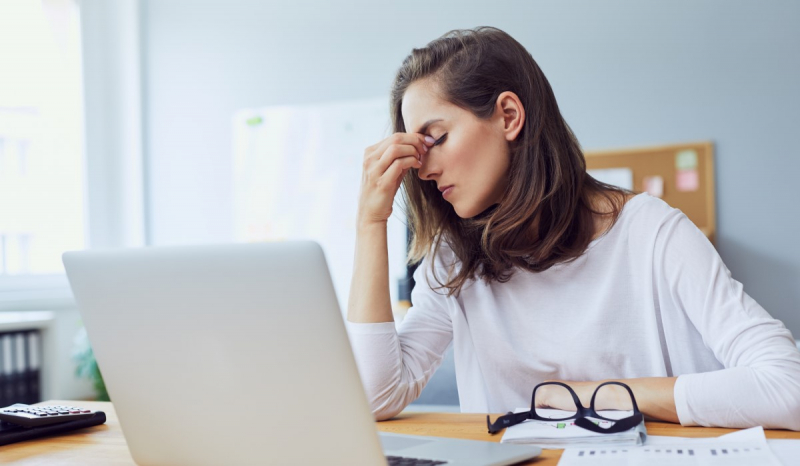
Forget Multitasking -
The negative impacts of living a sedentary lifestyle are experienced by many people. Exercise over your lunch break can help you combat the negative impacts of job stress on your body and mind.
According to an analysis of one research, those who went for a midday stroll reported feeling more at ease and less anxious at work than the non-walking control group. People reported feeling less nervous, more at ease, and more excited about their jobs on walking days than on non-walking days. Additionally, going for a walk had a big impact on how people felt throughout the day; on days when they went for a walk, they reported feeling much more enthusiastic and relaxed at work in the afternoon than they had in the morning. If your schedule permits it, you can consider taking quick breaks to exercise throughout the day. You may relieve stress, improve your mood, and become in better condition by doing this.
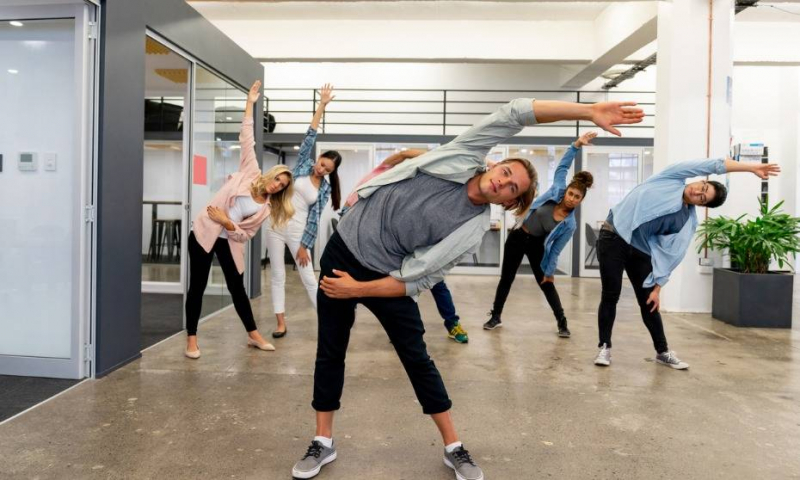
Walk at Lunch 
Walk at Lunch -
Perfectionism is a double-edged sword. On the one hand, it might inspire you to work hard in order to achieve excellent work. On the other hand, it could make you unnecessarily anxious and sometimes annoy your colleagues.
Particularly in hectic, time-constrained work, you might not be able to complete everything perfectly every time. The easiest method to avoid falling into the perfectionism trap is to constantly aim to do your best and set aside some time to celebrate your accomplishments. Stopping your desire to stay late at work. Give yourself the vacation you've been wanting but haven't planned and stop worrying about your to-do list. You could discover that your job is less stressful and that your results are better.

Keep Perfectionism in Check 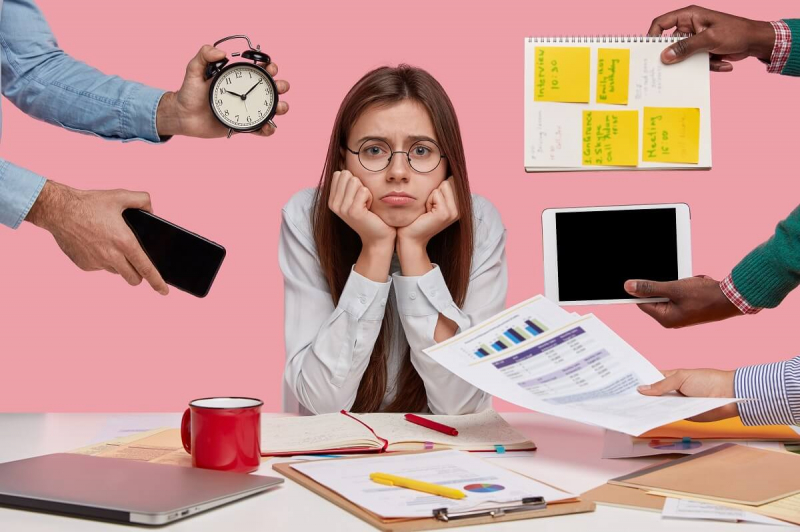
Keep Perfectionism in Check -
Numerous advantages of listening to music include stress reduction before, during, and after work. Music has the ability to have a favorable influence on physiological feelings of stress, such as decreasing stress hormones, heart rate, and help regulate your breathing.
Playing motivating music as you prepare breakfast might help you feel more prepared to interact with the people in your life when the day first begins. Similarly, listening to your favorite music on the way home might help you relax and feel less anxious after a long day. In order to reduce anxiety and boost energy levels, try listening to your favorite song or making your own playlist if you're having trouble letting go of your worries around work.

Listen to Music on the Drive Home 
Listen to Music on the Drive Home











